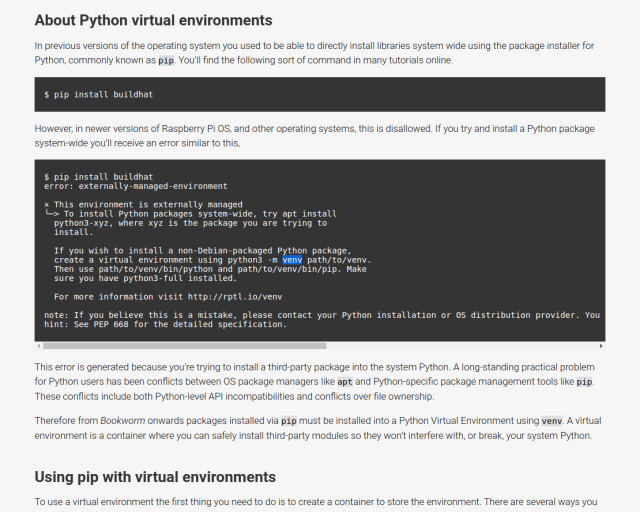#RaspberryPi OS Bookworm, released last week, brings a big change for Python users, as we implement a change introduced by the Python community in upstream Debian: from Bookworm onwards, packages installed via pip must be installed into a Python Virtual Environment using venv.
Cont...

Raspberry Pi :raspberrypi:
in reply to Raspberry Pi :raspberrypi: • • •... This will affect a lot of people, and we understand it will be disruptive for many as we all get used to the new way of doing things. Our documentation about this aspect of using Python on Raspberry Pi is at rptl.io/venv; if you try to use pip the old way, you'll see an error message which includes that link. There, we set out exactly what you now need to do in order to install packages via pip.
https://www.raspberrypi.com/documentation/computers/os.html#python-on-raspberry-pi
Raspberry Pi Documentation - Raspberry Pi OS
www.raspberrypi.comMarian
in reply to Raspberry Pi :raspberrypi: • • •stfn :raspberrypi: :python:
in reply to Raspberry Pi :raspberrypi: • • •hexaheximal
in reply to Raspberry Pi :raspberrypi: • • •definitely late to this thread, but for those who don't want to deal with python venvs (and rightfully so - they suck), the quick and easy solution is to add --break-system-packages to pip install commands, or by adding the following to ~/.config/pip/pip.conf:
[global]break-system-packages = true